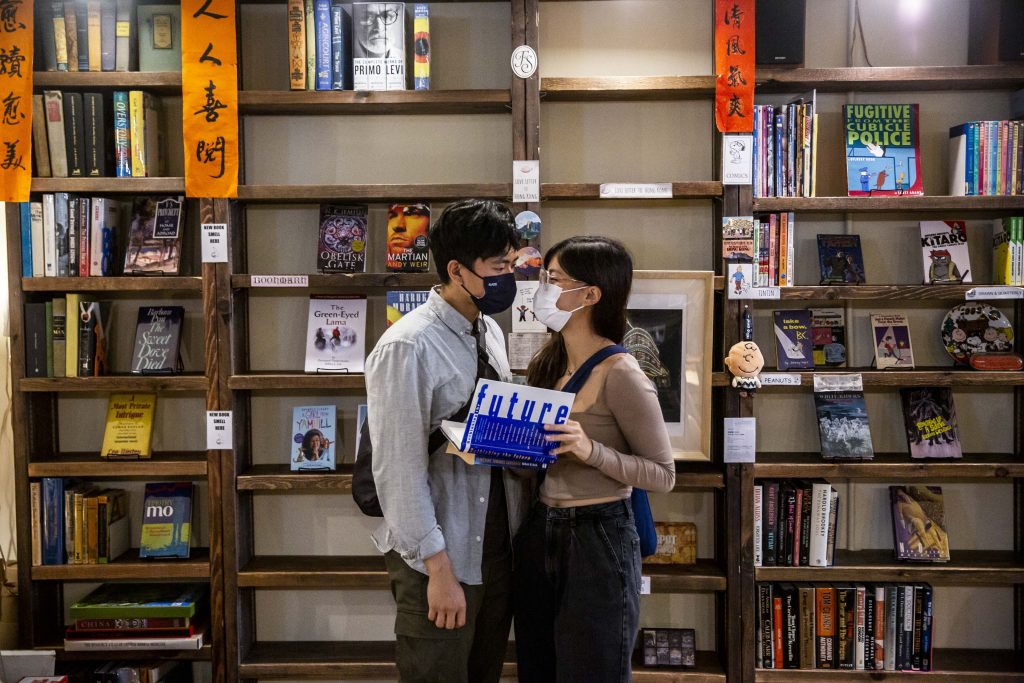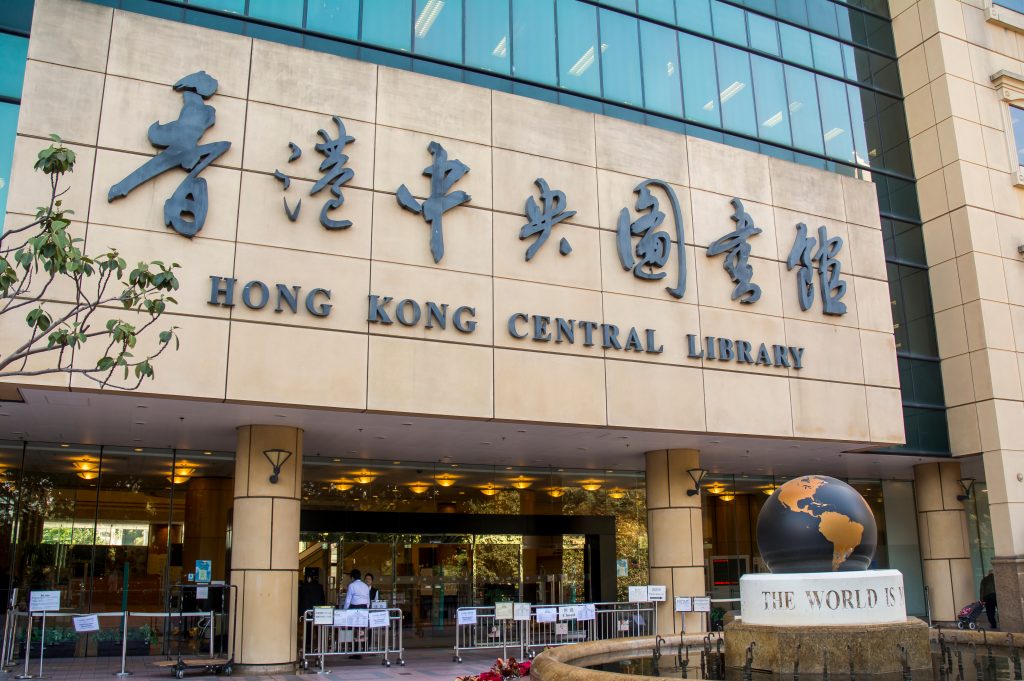
Public libraries in Hong Kong have been quietly removing books from the shelves deemed politically “sensitive” under a national security law imposed on the city by the ruling Chinese Communist Party (CCP).
More than 100 titles — many of them referencing the 1989 Tiananmen massacre — are believed to have disappeared from Hong Kong’s network of public libraries since the law took effect on July 1, 2020.
While the city’s leisure and cultural services department has made a list of more than 70 books deemed to be in breach of the law, which criminalizes public criticism of the Hong Kong and Chinese authorities, regular readers have spotted many more, according to local media reports.
Stand News, the Ming Pao newspaper and the English-language Hong Kong Free Press (HKFP) have listed books by jailed 2014 protest leader Joshua Wong, as well as dozens of books about the 1989 student-led protests in Tiananmen Square, and the June 4 massacre by the People’s Liberation Army that ended them.
While some books about the 1989 pro-democracy movement remain on library shelves, the number of copies has been slashed, forcing readers to order them via an inter-library loan scheme, the HKFP reported on Nov. 21.
Among the “disappeared” books are The Factual Account of a Search for the June 4 Victims (Vol. 1 – Vol. 2) by Ding Zilin, the founder of the Tiananmen Mothers victims campaign group.
Many of the books quietly disappeared from libraries after denunciations in the CCP-backed media, which said they broke the national security law.
As national security police raided and effectively shut down the pro-democracy Apple Daily newspaper and founder Jimmy Lai’s Next Digital media empire in June 2021, more than 30 books referencing the paper and Lai were removed from Hong Kong libraries after a complaint from a pro-CCP politician.
Books by Occupy Central founder and former law professor Benny Tai were also taken down following criticism in the Beijing-backed Wen Wei Po and Ta Kung Pao newspapers.
The Hong Kong government has previously said the leisure and cultural services department “regularly writes off dilapidated, damaged and outdated material, as well as items that no longer hold any value as reference or research resources.”
“If any content is found to violate the National Security Law for Hong Kong or other relevant legislation, it will be … taken seriously, and suspended from our collection,” it has said in response to previous media inquiries.

‘They just do whatever they want’
Veteran publisher Jimmy Pang, who has said the national security law has forced publishing houses and writers to halt projects and printers, distributors, and bookstores to reject sensitive books, said his Sub-Culture publishing house had had at least one title removed from libraries in May.
“In the past, we had clear boundaries … but now it’s not based on whether we understand or comply with [a set of rules],” Pang said. “They just do whatever they want now.”
He said the removal of Lai’s books on food and business was particularly strange.
“How did Jimmy Lai’s books about food and how to get ahead in business violate the national security law?” he said. “Another book by [journalist] Allan Au was based on a doctoral dissertation completed before 2017 … so how do they determine how far back to go?”
“We don’t know how many copies have been taken off the shelves,” he said, adding that the practice is already having a “chilling effect” on Hong Kong’s once-vibrant publishing industry.
“They will need to pore over every page, every word in every book to meet the government’s requirements,” he said.
Au recently told Stand News he wasn’t surprised that his work is now disappearing from libraries.
“A lot of voices have disappeared or been silenced in the current climate,” Au said. “Will libraries only offer books about food, travel and romance, or official history books in future?”
Repeated attempts to contact the leisure and cultural services department for a comment went unanswered at the time of writing on Wednesday.
Copyright © 1998-2020, RFA. Used with the permission of Radio Free Asia, 2025 M St. NW, Suite 300, Washington DC 20036. https://www.rfa.org.
Source: Licas Philippines
0 Comments